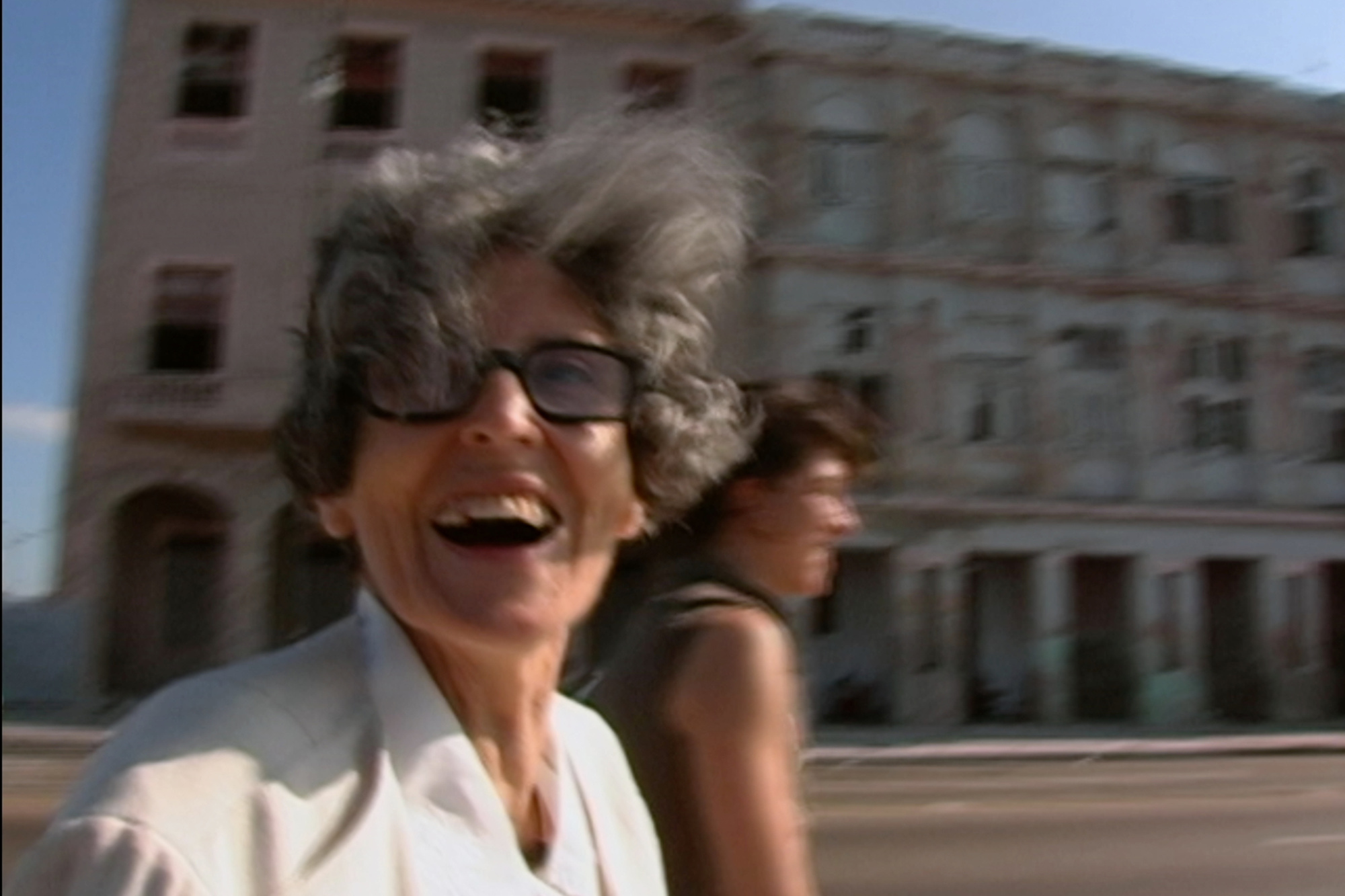The Rest I Make Up
Director/ Michelle Memran
Watched on Kanopy
Rating 2.5/5
I was disappointed to discover that the Wikipedia entry about Maria Irene Fornes contained far more detail about her art, life, and career than The Rest I Make Up, Michelle Memran’s affectionate but limited love letter to the avant-garde playwright. Known by theater insiders for her freewheeling spontaneity and intense belief in how physical expression leads to creative release, Fornes lived the type of artistic life that few of us are able to manage any longer.
She was beloved by famous playwrights and discerning critics, and she influenced younger actors and writers. The absence of recognizable titles during her Obie-award winning, prolific career only adds to her bona fides as an outsider living the life she wanted. It also didn’t hurt that she was Susan Sontag’s lover of many years. According to Wikipedia, “Sontag voiced frustration about a novel she wanted to write, (so) Fornes insisted that they give up their evening plans, go back to the apartment they shared, sit down at the kitchen table, and just set to work. When they got home, as if to prove how simple it was, Fornes sat down to write, as well. With no experience and no idea how to start, she opened up a cookbook at random and started a short story using the first word of each sentence on the page. ‘I might never have thought of writing if I hadn’t pretended I was going to show Susan how easy it was.'”
That’s a wonderful anecdote, but it doesn’t show up in this film. Neither does this: “Fornés’s first step toward playwriting had been translating letters she brought with her from Cuba that were written to her great-grandfather from a cousin in Spain. She turned the letters into a play called La Viuda (The Widow, 1961), which was never translated into English, but it was presented in Spanish in New York.”
Wikipedia also delves into details about the staging of her work, her concentration of character over plot, and the legendary workshops she taught, which emphasized the body, mind and spirit as keys to sustained creative rewards, not the mechanics of word choice or structure or superficial audience satisfactions. I’m reading a lot into this, because the movie itself only grazes over her work. It’s odd really, for a film about a woman who was known for creating revolutionary work–but who was not known outside the formalist theatrical circles where her work was revered and studied–to treat her visionary genius so casually.
Instead Memran, who is young but not so young to not have known Fornes for a long time, uses much of the film’s 79-minute running time to document Fornes’ incipient Alzheimer’s disease. She doesn’t document it by filming the usual grim medical appointments and the vacant pauses to illustrate a person searching for a word or memory (although there is some of that), but her fading memory hovers at the edge of every scene. There is even a brief talking head soundbite from the author of “The Forgetting,” a well-known book on Alzheimer’s, as if the film was veering into the standard documentary sub-genre of disease-porn.
Fornes and Memran are clearly good friends, comfortable with each other, and Memran pays loving tribute to Fornes being responsible for giving her the confidence to explore her own creative desires. But their friendship gets in the way of coherent moviemaking. I felt we were watching Memran learn, in real time, how to operate and move her camera, while also struggling to find a narrative focus. A trip back to Cuba to visit Fornes’ brother and nephew is affecting, as is the movie’s final 15 minutes, when Memran and her subject seem to be saying goodbye for the last time. There is earned poignancy in these scenes, but I was sad that the movie was ending before we really got a chance to understand Fornes or her much-lauded output. A scene where she receives an award from the Seattle Repertory Theater is a poor substitute for incisive critical appreciation.
Rather than a film about Fornes and her career, The Rest I Make Up is about the importance of living a life free from the grinding restrictions of convention, and about how maybe–when the end of memory, cognition, and talent finally arrives–the spirit of that lived life is the only legacy that matters. This is what Memran’s film wants to emphasize, and it anchors the film’s schizophrenic point-of-view and scattershot aesthetics to something tangible. In the world of slapdash documentary biopics and portraiture I’d much rather listen to Fornes quiz the director about her camerawork than watch a conveyor belt of talking heads drone on, but I think The Rest I Make Up is a film expressing the loss of an artistic mentor rather than the celebration of that mentor’s art.

